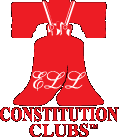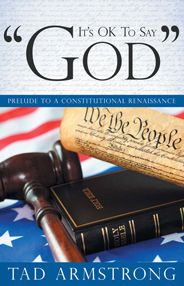20 Apr 2020
What Price Freedom?
Tad Armstrong
Michiganders are not permitted to purchase garden seed or paint. Boating is forbidden – even if the manifest are members of one household – even if the passengers are masked — even if those aboard maintain social distancing — and, yes, even if just one fisherman dares to push off for an hour of communion with nature. Hey, Illinoisians, we have cause to rejoice. We can now add one state to the short list of states worse to live in than our own! Whitmer for vice-president? Uncle Joe, please pick her.
I am admittedly a coward to have waited this long to publicly ask the question that should have been asked (studied by think tanks, several Presidents and Congress) decades ago, before the theoretical became reality. I wanted to ask this only relevant question when the first covid case arrived on our shores, but just could not speak the truth when no one wanted to face the truth. That question is not difficult. The answer is another matter and your answer will depend upon the values you hold dear.
The Question? How many deaths are Americans willing to accept in a crisis to remain free?
If your answer is zero, that means Europe would not have been liberated from the scourge of Hitler, our Civil War to end slavery would not have been fought and between October and May of every year we should quarantine the elderly and anyone who has the flu while trashing their constitutionally protected freedom. There is a vaccine for the flu and, yet, it kills as many as 60,000 in a given year in our nation alone. It appears we Americans have been willing to accept this annual death toll in return for freedom, knowing that any one of us could be its victim.
Terrorists around the world are taking notes and watching with interest, learning how to destroy freedom and take down the most powerful nation in the world. Sad to say, but we have now entered an era of massive germ warfare. I do not fault anyone thus far for our collective reaction to covid. In fact, if it turns out we have overreacted, perhaps that is the only prudent course when fighting the unknown. But folks, we cannot do this again. If we shut down our economic engine every time we are faced with a crisis of this nature until the risk to life is zero, we might as well burn the Constitution and forfeit our freedom for the new totalitarian state. We cannot permit over 20 million jobs to be lost and print trillions of dollars of funny money again.
“Oh, say does that star-spangled banner yet wave o’er the land of the free and the home of the brave?” Francis Scott Key wrote what would become our national anthem in 1814 and this is the familiar last sentence of the first stanza. You remember, the sentence we used to sing at the ballpark.
We will never return to the old normal, but we need to begin the discussion of how and when to shape the new normal. I don’t have the answers and don’t envy our President’s task – one that will involve decisions as momentous as those of President Lincoln in his day.
This horrific experience might actually bring us together in a “more perfect union” if we can reach a consensus of who we claim to be and then strive to earn the right to that claim.
I believe our answers could well lie somewhere in those familiar words of Key. Did you ever stop to think that the last sentence of the first stanza is a question? Look at it closely and you will find that it actually asks three questions: (1) “Does our flag still wave?” (2) “Can we rightfully claim to be the land of the free (whatever that means)?” And, (3) “Are we the home of the brave (whatever that means)?”
Of course, our flag still waves.
If you ask thirty people what freedom means to them, you will likely get thirty different answers. But it is safe to say that we have lost many aspects of freedom to this point. Being told where you can go, when you can go there, where you must stay, who you can be with, what you must wear, what you are forbidden from purchasing, what you are forbidden from doing or whether you can even open your business or go to work is not anything close to freedom.
I don’t believe most of our native citizens understand or appreciate the freedoms we have thus far enjoyed, at least not anywhere close to the level of understanding and appreciation possessed by most naturalized citizens. Perhaps this is a wake-up call.
This crisis provides a real opportunity to examine how much we value American freedom and, therefore, how much we are willing to risk in order to get it back, which leads to the soul-searching question: How brave are we? Some may believe that today’s freedom requires the self-discipline of seclusion. “Save yourself…save your fellow man…we’ll get through this together…just be brave…shelter yourself while you watch your nation, your job, your family, your business, the livelihood of your neighbors and the American dream for your grandchildren disintegrate.”
The early settlers of our nation who fled tyranny to seek a better life of freedom knew full well that half of them would die while crossing the Atlantic. Over 2,500 died on the beaches of Normandy…6,800 at Iwo Jima. The families they left behind understood the price of freedom. Over 600,000 of our military (let that sink in…over 600,000) died in the Civil War, two thirds of them from communicable disease. We didn’t shut down the engine of war to save lives we knew would be lost in the pursuit of freedom. Our ancestors’ definition of freedom required a different form of bravery foreign to the idea of self-seclusion. Seclusion is a form of bravery that requires tremendous discipline. It is the bravery of safety… the bravery of security… a type of bravery that is willing to forego freedom in the process.
Now, just as clearly, we don’t want to be the land of the “foolish and the dead.”
The answer to next steps might lie somewhere in our history. How brave were our ancestors? What values were they willing to fight for? What price were they willing to pay for freedom? What price are we willing to pay to get back to the type of freedom that over one million three hundred thousand of our military paid for with their lives to preserve it for us? Are we willing to accept a new norm that cheapens their sacrifice?
Freedom has never been free, although most of us who are not combat veterans or members of their families have enjoyed the freedom they purchased with little relative sacrifice to us.
I recommend a very well written short book: How Do You Kill 11 Million People, by Andy Andrews. It’s the story of how fear motivated an entire nation of good people to stand in silence and look the other way while Hitler murdered millions. Fear can move mountains.
One way to insure no future deaths on our highways is to stay in bed. Negligent or intoxicated or sleepy drivers can kill you just as readily as asymptomatic corona carriers.
One way to insure no future corona deaths is to stay in bed and partake in a deep economic depression, an increase in suicide, anarchy in the streets and a dependency upon government in return for your blood bought freedom.
The quality of life we Americans seek to achieve will depend upon how much risk we are willing to take.
How do you define freedom? What sacrifices are you willing to make to preserve it?
There is another book, a masterpiece, that tells how faith in Jesus Christ as small as that of a mustard seed can move mountains and heal a nation: The Holy Bible. It tells how Christ has already paid the price for the ultimate form of freedom — underserved and free – eternity with the Creator in heaven. There is only one way to eliminate all risk. Read The Book and turn your life over to Christ. That is an option I highly recommend.
Tad Armstrong is an Edwardsville (Illinois) lawyer, founder of ELL Constitution Clubs (www.ellconstitutionclubs.com), frequent talk show guest, op-ed writer and author of two books on the Constitution: “It’s OK to Say ‘God”‘ and “ONE.”

Comments










